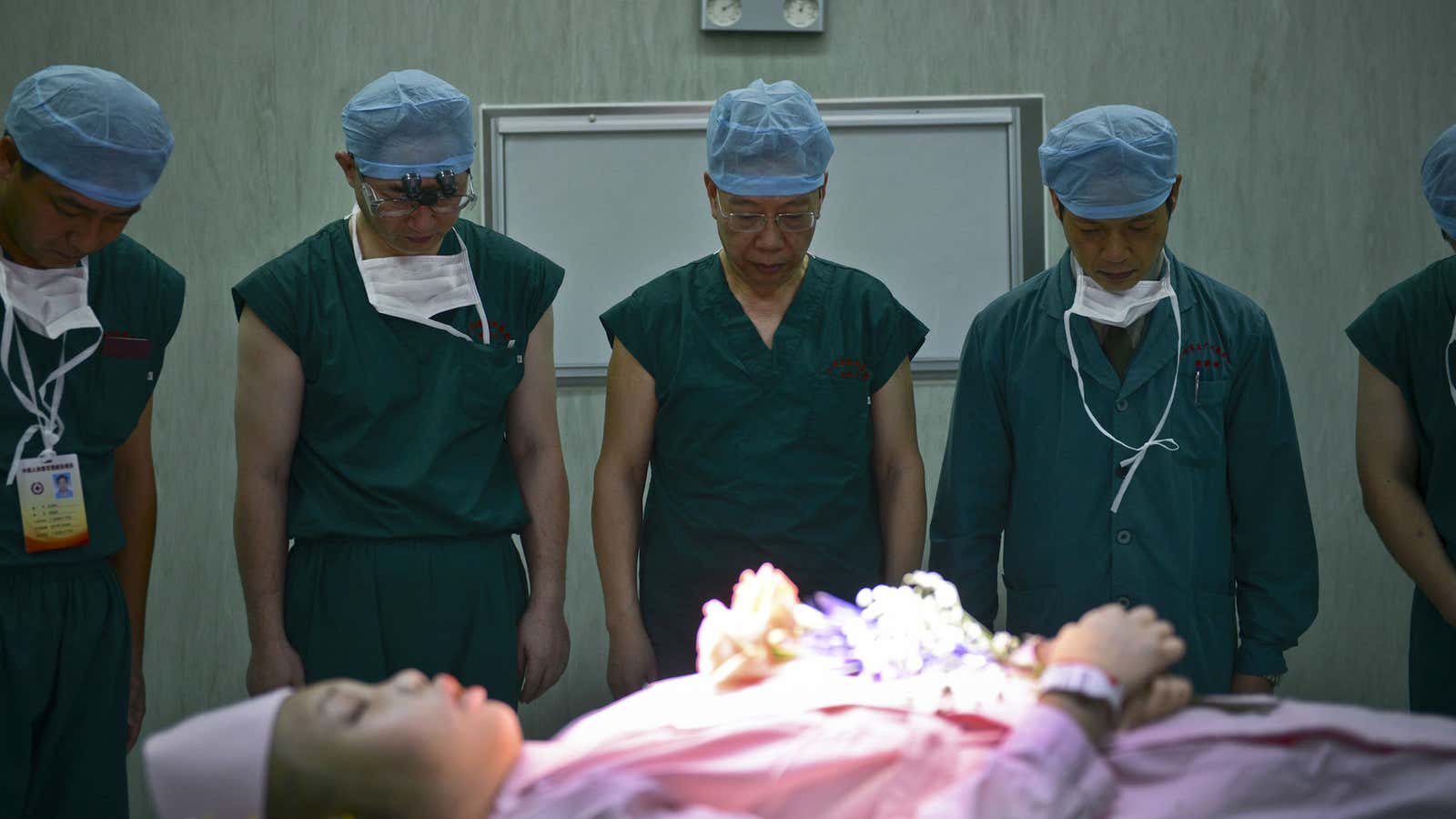China has one of the lowest rates of organ transplants in the world — 2.4 or fewer transplants per million residents in 2012, compared to 75 or more transplants per million residents in the US, Spain, and Norway. Even Party officials concede that 20 or more transplants are needed for every one that takes place.
Amid the shortage, China has used organs from executed prisoners for transplants. As of the end of 2012, some 64% of organ transplants in China were from executed inmates.
That practice is a controversial one on ethical grounds. And this week, Chinese health officials and surgeons signed a resolution to stop the use of prisoners’ organs. In March, China launched its first official organ donation registration site.
But making up for the even-larger organ transplant shortfall will mean changing Chinese views of death and distrust of a system that has been rife with corruption. Chinese tradition holds that a person’s body must remain intact after death so that their soul can be reincarnated.
Taboos surrounding speaking about death and organ donation are another obstacle. In one study of 298 adults, 88% said they did not want to talk about their organ donation preferences with family members. Without knowing their relatives’ preferences, families of the deceased are more likely to reject requests for organs, experts believe.
Chinese officials have made progress in updating other traditional customs surrounding death, like promoting sea burials to save space. To promote the practice of organ donation, state-run media cover donors and their stories extensively. This week, three Chinese party officials promised to donate, after a directive was circulated encouraging party members to lead the way in reform and donate their organs after they die.
Views toward death may be changing. According to a poll in 2012 (link in Chinese) of 1,012 residents in Guangzhou, 79% of them said that “organ donation after death is noble.”
But many more are still put off by China’s underground trade in organs—kidneys can sell for as much as 200,000 yuan ($32,000)—and a lack of transparency. The Red Cross Society of China, which is helping run the country’s organ donor system, is wildly unpopular after it was accused of misusing funds. In the Guangzhou poll, 81% of respondents said they worried that their donated organs would wind up traded for money.
